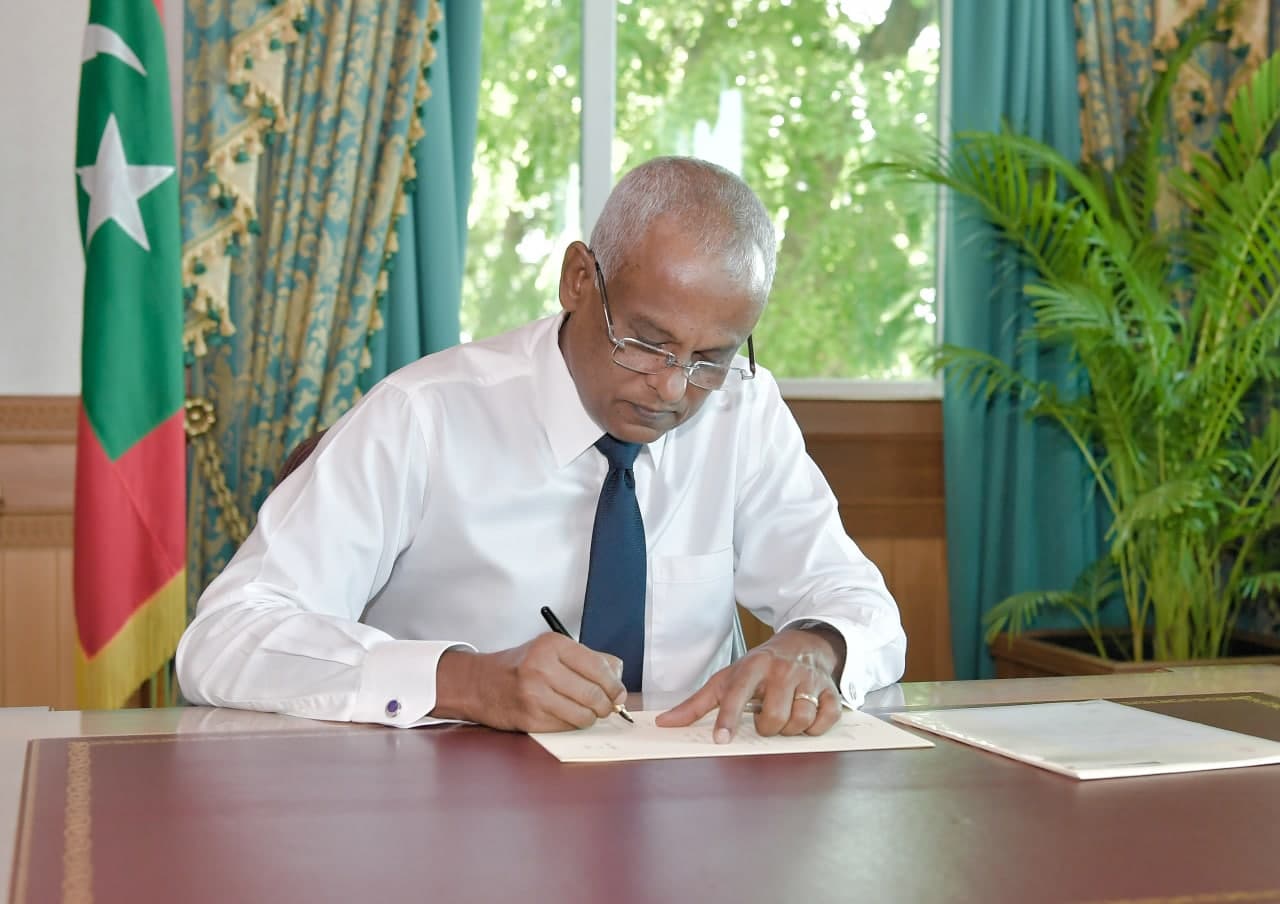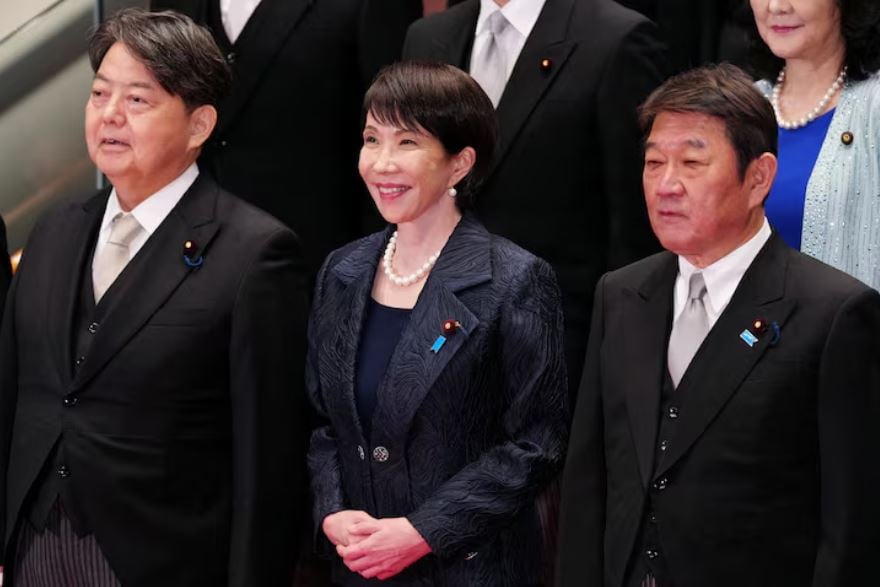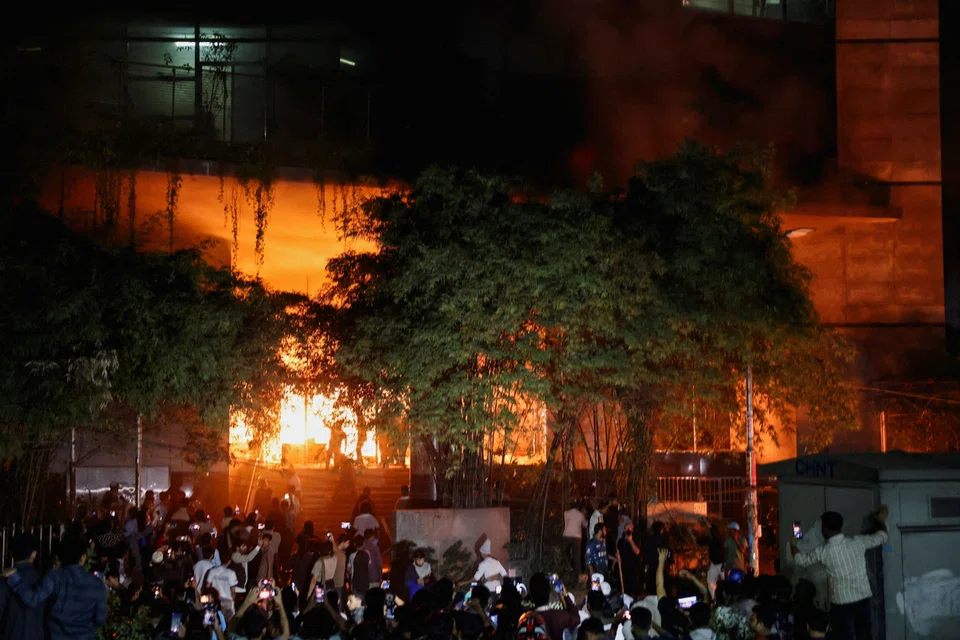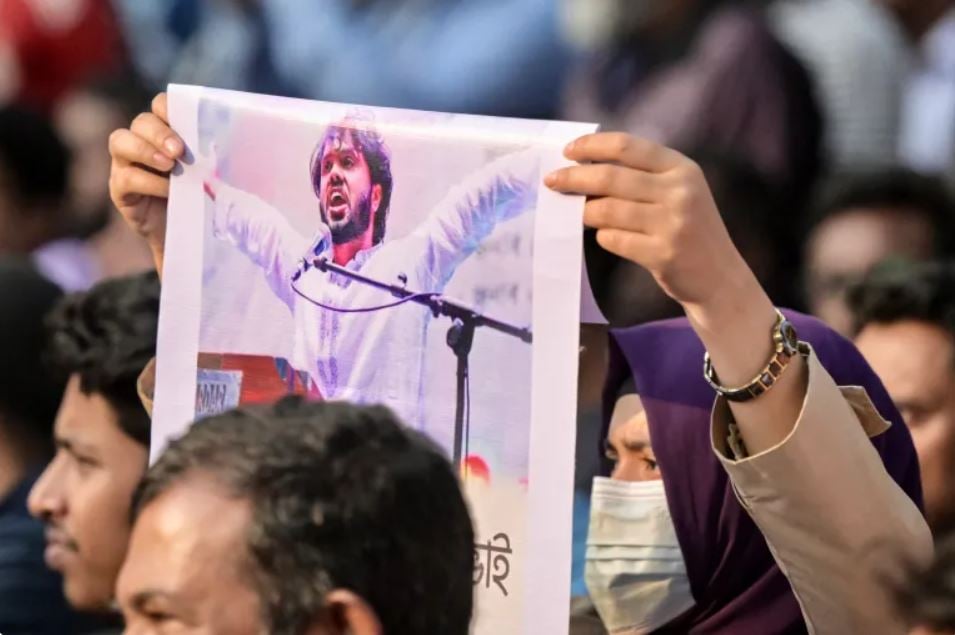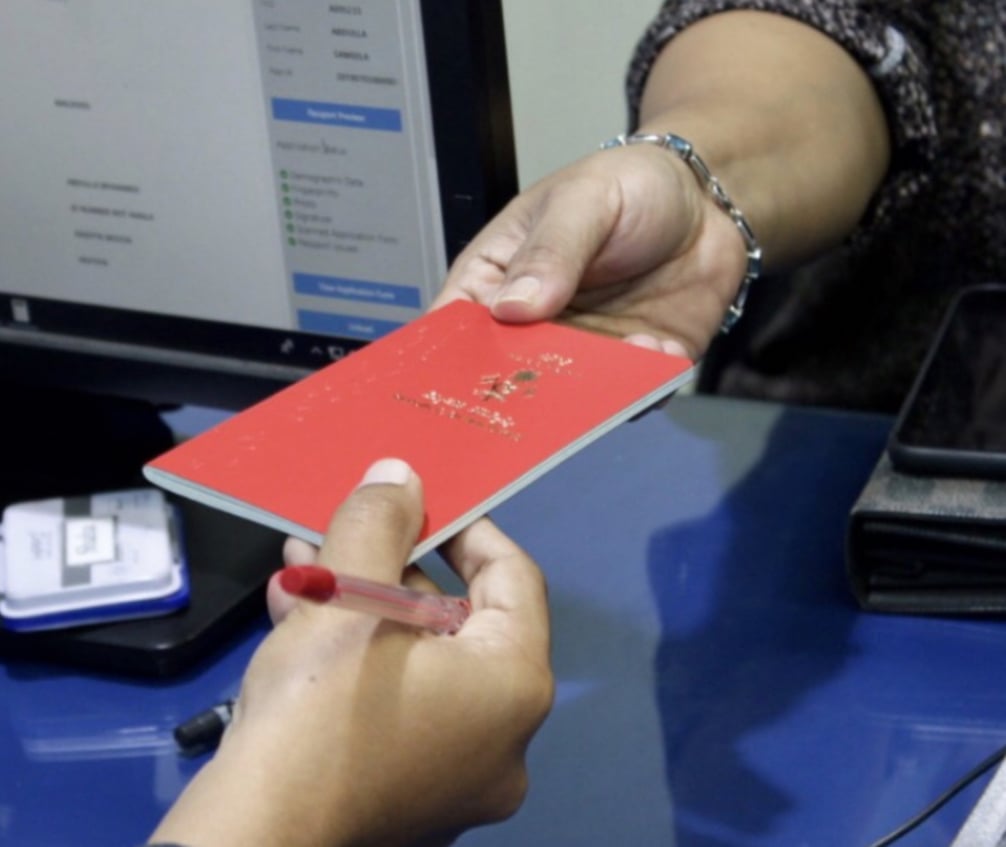President Ibrahim Mohamed Solih ratified the Prohibition of Chemical Weapons Act (Act No. 22/2022) on Thursday. Parliament passed the bill on Monday, November 28, 2022, at the 43rd sitting of its third session this year.
The law prohibits the production, stockpiling, and use of chemical weapons and defines the procedures for disposing of them in the Maldives. The bill outlines the prohibition of chemical weapons in line with the United Nations Convention on the Prohibition of the Development, Production, Stockpiling, and Use of Chemical Weapons and on their Destruction, to which the Maldives is a party.
The law mandates the relevant ministry to designate a "Chemical Weapons Unit" to govern the enforcement of the law. The law also defines the powers and responsibilities of the body. Upon ratification of the law, only the parties licensed by the "Chemical Weapons Unit" will be permitted to import and export any chemicals that fall under the law's purview. The law also grants six months from its ratification to the "Chemical Weapons Unit" to draw up guidelines and policies outlined in the law.
The law was published in the Government Gazette upon ratification and will go into effect in three months.
In addition, President Ibrahim Mohamed Solih on Monday ratified the Waste Management Act (Law No: 24/2022). Parliament passed the bill at the 43rd sitting of its third session on Monday, November 28, 2022.
The law governs the implementation and enforcement of sustainable waste management practices and policies drawn up to mitigate the negative effects of waste and protect public health, and it outlines the standards and procedures for sustainable waste management. The bill also specifies administrative and punitive measures and penalizes criminal offenses.
The purposes of the law include reducing pollution and environmental damage caused by waste, encouraging the reduction of public health risks, reducing the production of waste, and encouraging the recycling and reusing of waste. The law also specifies penalties for any form of damage to waste management systems, including mismanagement and negligence.
The bill empowers the relevant Cabinet Minister to draw up a waste reduction strategy and grants a 12-month period from the ratification of the law to draw up a sustainable waste management strategy. The Minister will also have 12 months to draw up a national master plan on waste management and one month to draw up an action plan to encourage and reward waste management initiatives.
The law also defines procedures for reducing single-use plastics (SUPs), charging for plastic bags, accruing fees, and penalizing for offenses prohibited in the law. Upon ratification, the law was published in the Government Gazette and is now in effect.
The law prohibits the production, stockpiling, and use of chemical weapons and defines the procedures for disposing of them in the Maldives. The bill outlines the prohibition of chemical weapons in line with the United Nations Convention on the Prohibition of the Development, Production, Stockpiling, and Use of Chemical Weapons and on their Destruction, to which the Maldives is a party.
The law mandates the relevant ministry to designate a "Chemical Weapons Unit" to govern the enforcement of the law. The law also defines the powers and responsibilities of the body. Upon ratification of the law, only the parties licensed by the "Chemical Weapons Unit" will be permitted to import and export any chemicals that fall under the law's purview. The law also grants six months from its ratification to the "Chemical Weapons Unit" to draw up guidelines and policies outlined in the law.
The law was published in the Government Gazette upon ratification and will go into effect in three months.
In addition, President Ibrahim Mohamed Solih on Monday ratified the Waste Management Act (Law No: 24/2022). Parliament passed the bill at the 43rd sitting of its third session on Monday, November 28, 2022.
The law governs the implementation and enforcement of sustainable waste management practices and policies drawn up to mitigate the negative effects of waste and protect public health, and it outlines the standards and procedures for sustainable waste management. The bill also specifies administrative and punitive measures and penalizes criminal offenses.
The purposes of the law include reducing pollution and environmental damage caused by waste, encouraging the reduction of public health risks, reducing the production of waste, and encouraging the recycling and reusing of waste. The law also specifies penalties for any form of damage to waste management systems, including mismanagement and negligence.
The bill empowers the relevant Cabinet Minister to draw up a waste reduction strategy and grants a 12-month period from the ratification of the law to draw up a sustainable waste management strategy. The Minister will also have 12 months to draw up a national master plan on waste management and one month to draw up an action plan to encourage and reward waste management initiatives.
The law also defines procedures for reducing single-use plastics (SUPs), charging for plastic bags, accruing fees, and penalizing for offenses prohibited in the law. Upon ratification, the law was published in the Government Gazette and is now in effect.





